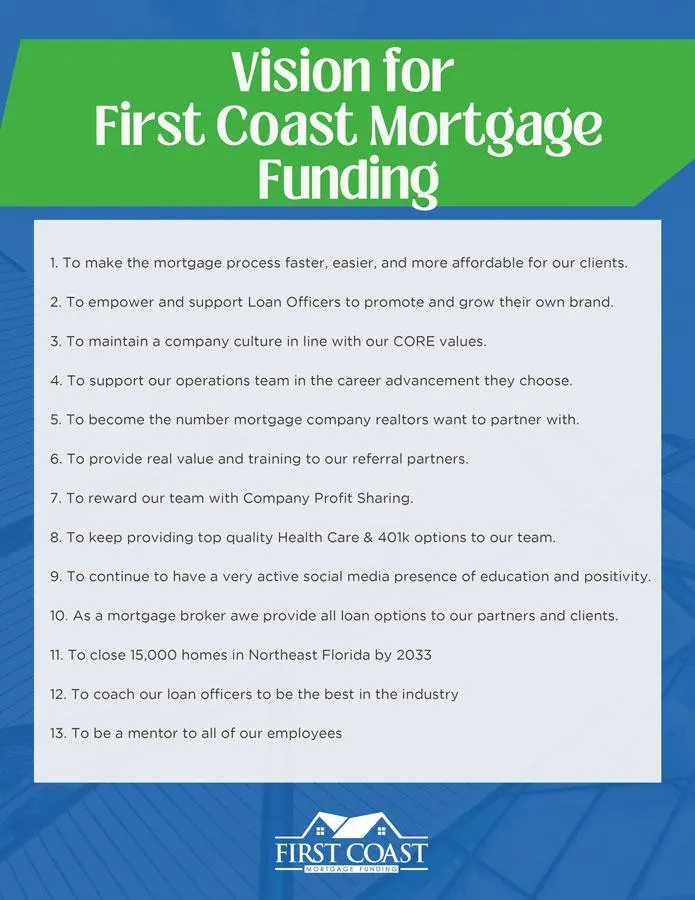904-217-5450
11363 San Jose Blvd Building 200, Jacksonville, FL 32223
Company NMLS: 1953441
Se Habla Espanol
Welcome to First Coast Mortgage Funding
We know that each customer has specific needs, so we strive to meet those specific needs with a wide array of mortgages and the best quality service and individual attention.
Today’s technology is providing a more productive environment to work in. For example, through our website you can submit a complete on-line, secure loan application or pre-qualify for a home loan. You may also evaluate your different financing options by using our interactive calculators and going over various mortgage scenarios.
APPLY NOW
Our Secure Application takes a few minutes and is required for a "Pre-Approval." You will be contacted once your application is submitted.
PURCHASE A HOME
Whether you're buying your first home or your dream home, we have a mortgage solution for you. Get your custom rate quote today.
REFINANCE YOUR HOME
We're committed to helping you refinance with the lowest rates and fees in the industry today. Check out our Low Rates, Start the Process Today!
Customer Reviews
Excellent

Based on 205 reviews

We Are Independent Mortgage Experts, Who Ensure You Get The Best Service, Programs, and Rates.

Contact Us Today
I agree to terms & conditions provided by the company. By providing my phone number, I agree to receive text messages from the business.

Purchasing or Refinancing Your Home is
Easy With Our Help
Purchasing or Refinancing Your Home is Easy With Our Help
Office Hours
Mon-Fri 8:30 am to 7:30 pm
Saturday 9 am to 6 pm
Sunday Closed
Our Support and Sales team is available 24/7 to answer your questions.
Office Hours
Mon-Fri 8:30 am to 7:30 pm
Saturday 9 am to 6 pm
Sunday Closed
Our Support and Sales team is available 24/7 to answer your questions.
© 2024 First Coast Mortgage Funding. All Rights Reserved.
© 2024 First Coast Mortgage Funding. All Rights Reserved.











